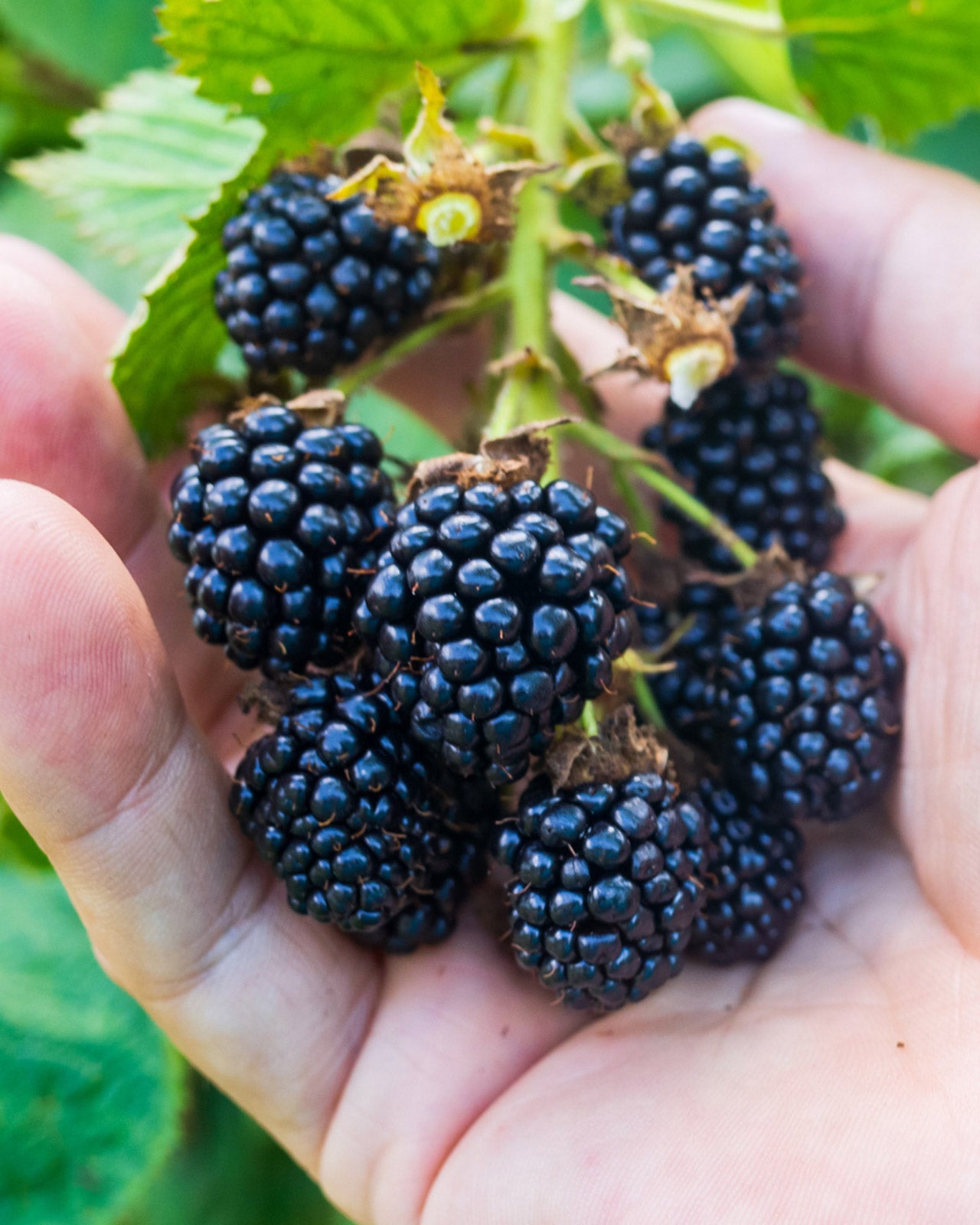
-
Why we like this plant
If you’ve ever been put off by the prickles of traditional blackberries, 'Merton Thornless' is the solution. With smooth canes and lovely, tasty fruit, it’s a joy to grow and even more enjoyable to harvest. It's a brilliant choice for children or anyone who loves growing food without the fuss.
-
About this plant
-
Key features
- Thornless canes for easy harvesting
- Delicious, medium to large fruit
- Great for desserts, jams, and freezing
- Suitable for training on supports
- Reliable UK-bred variety
-

Eventual height and
spreadHeight: 200–250cm | Spread: 150–200cm
-

Growth
habitArching, manageable canes that are easy to train and maintain thanks to their lack of thorns.
-

Moisture
Moist but well-drained
-

Position in
the GardenIdeal along a fence, arch, or trellis where it can be supported and easily accessed.
Planting guide
Plant in a sunny or lightly shaded spot with good drainage. Space plants 1.5m apart, and install a support system before planting to train the canes as they grow.
Care tips
Feed in early spring, prune fruited canes in late summer or autumn, and tie in new canes to prevent tangling.
Winter care
Cut out canes that have fruited after harvest and mulch the base to protect roots. Tie in new growth before winter.










